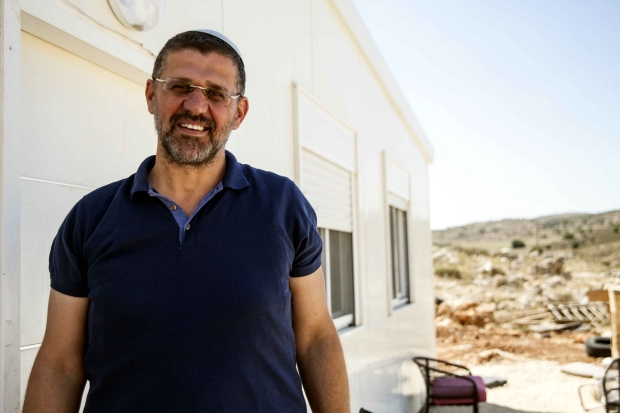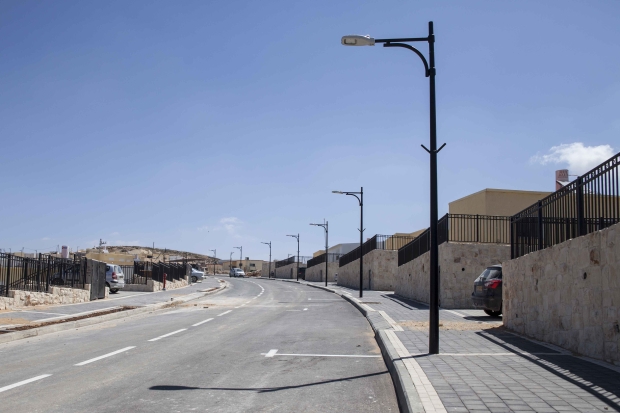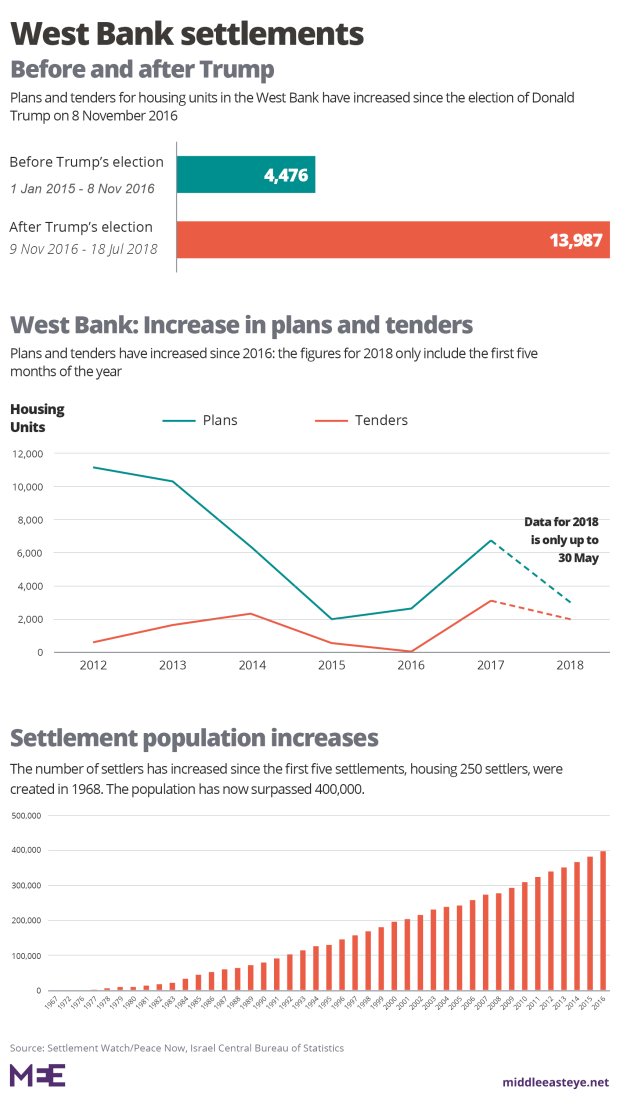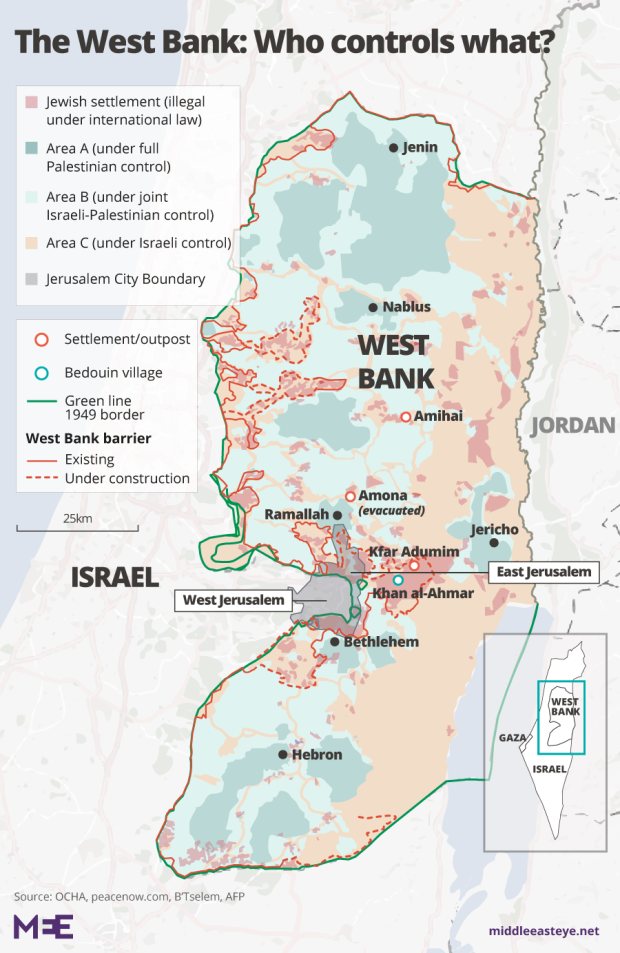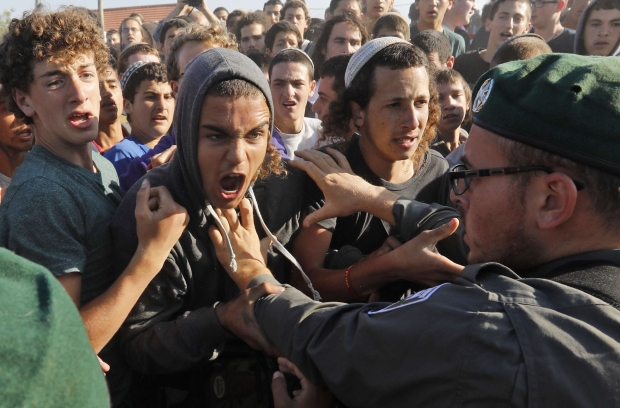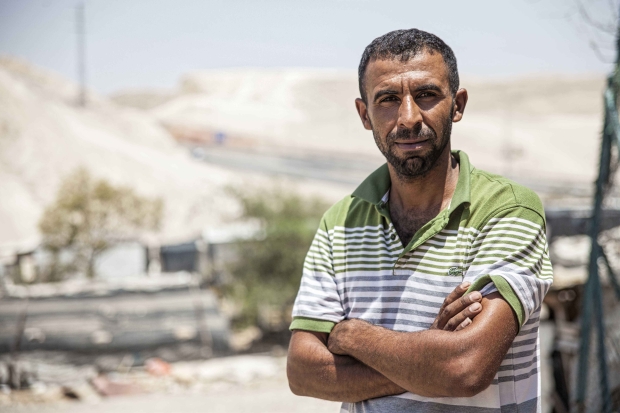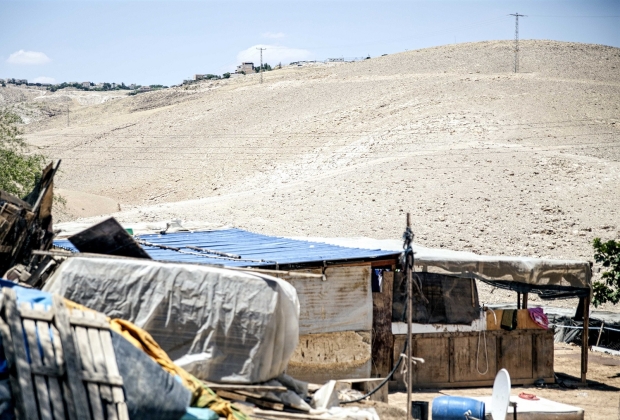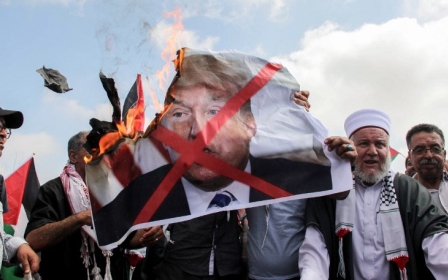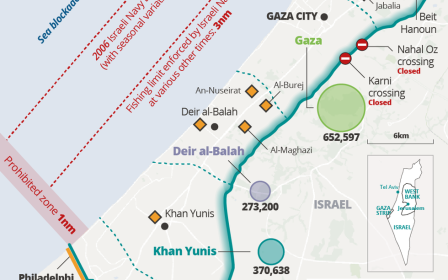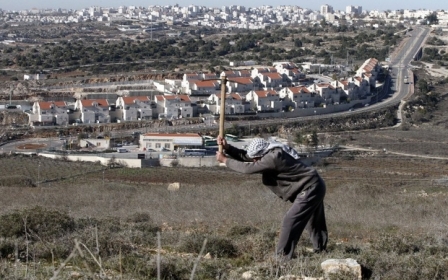How Israel boosted its settlement programme after Trump's election victory

On a hilltop south of Nablus, the settlement of Amihai is taking shape.
Construction crews and heavy-duty machinery trawl the dusty site. Rudimentary roads criss-cross the dry earth. Identical rows of incomplete rectangular houses sit squat, bounded by dirt piled in their front gardens and backyards.
For Avikhay Buaron, one of Amihai's first residents, this is home.
Despite grumbling about the size of his house - “In Amona, we had a 180 sqm house that we built from our own money. This is 90 sqm, we have seven kids” - he is supportive of government plans to extend the boundaries of Israel with settlements. "Amihai is completely legal," he says. "It’s kosher."
Israeli authorities recognise settlements, but outposts - which are erected by settlers without planning approval from the Israeli government - are deemed illegal under Israeli law.
But Buaron has faith in the authorities. “The Israeli state will claim sovereignty on Judea and Samaria [the West Bank],” he says, “because the Israeli people believe it’s their homeland. Thinking that the Jews are going to leave Judea is a total mistake. They aren’t going to leave anywhere."
And there is also a foreign government, more than 9,000 km from this settlement, to which Buaron is thankful.
“Thank God we have America," he says.
A vision of Israel
The construction of Amihai was approved in March 2017, the first new settlement to be officially established by the Israeli government since 1992.
Already, 102 housing units have been authorised since US President Donald Trump, Israel’s biggest supporter in the White House for decades, assumed office in January 2017.
But far less publicity has been given to the number of approvals awarded to Israeli settlements during the same period. Each plan for a housing unit - defined as a single house - has to pass four stages within the Israeli government. Only then is it put out to tender, allowing prospective contractors to bid on the settlement’s construction.
During the past two years, the increase in settlement growth has been steep. This is regardless of what stage the settlement is at, be it a set of architect's drawings in a planning office or handing over the front-door keys to a settler family.
In the 22 months before Trump was elected in November 2016, 4,476 housing units were approved, according to the Israeli organisation Peace Now. But in the 21 months since, that figure has more than tripled to 13,987 housing units.
'What we see on the ground since Trump was elected is [support] for the Israelis to expand settlements'
- Hagit Ofran, Peace Now
The building of settlements in the West Bank is illegal under international law. The Fourth Geneva Convention states that “the Occupying Power shall not deport or transfer parts of its own civilian population into the territory it occupies”, as has happened with Israel and the West Bank.
And yet the numbers continue to grow: that figure for the past 19 months excludes the Israeli government approval on 3 July this year of 1,000 housing units, intended to expand the settlement of Pisgat Zeev in East Jerusalem.
Hagit Ofran, a member of the Settlement Watch team at the Israeli organisation Peace Now, says: “What we see on the ground since Trump was elected is [support] for the Israelis to expand settlements. We see it in what is being officially said by the US administration and on the ground with what Israel is doing.”
The expansion of settlements, along with the pressure placed on Palestinian villages by Israeli authorities, is political and in line with the vision to extend Israeli sovereignty across the occupied West Bank to the Jordan River.
It is a vision which Ofran believes is becoming reality. “They’re moving towards the mentality of annexation, through many legislative initiatives by the government.”
Trump breaks with tradition
US presidents, be they Democrat or Republican, have traditionally been critical of Israeli settlements.
Walid Assaf, the Palestinian Authority's chairman of the Commission Against the Wall and Settlements, says: “Obama couldn’t do anything for peace in the area but Trump is not dealing with it as a president.
“He’s not applying international law and he’s giving all the protection to the Israeli occupation. Trump actually is one of the worst presidents of the US of all time.”
During his first meeting with Benjamin Netanyahu in 2009, Obama told his Israeli counterpart that there must be a freeze on settlements.“Even before, under the Bush administration, there was a clear policy of not accepting settlement construction anywhere,” says Ofran.
That has changed with Trump.
We usually saw, with previous administrations, reactions to dramatic development with settlements. This administration has issued almost no comments
- Hagit Ofran, Settlement Watch
“It’s more what the US has not officially declared,” Ofran says. “It’s more the lack of any comments on things that are done on the ground by Israel. We usually saw, with previous administrations, reactions to dramatic development with settlements. We would see comments from the White House. This administration has issued almost no comments.”
Ofran says that the Israeli government is now doing things which were considered taboo in the past, such as the new housing units approved in the heart of Hebron. The area was ranked second highest in the West Bank for settler violence against Palestinians in early 2017, according to the UN's Office for the Coordination of Humanitarian Affairs (OCHA), which represents the organisation’s humanitarian efforts in the region.
“Plans to build a new settlement of 31 units in the heart of Hebron is something we didn’t have since the 1980s,” Ofran says. "It’s not only the quantity, it’s the quality of what they’re doing.”
“I absolutely feel the Trump administration is for Netanyahu. Trump’s helping him do what he wants to do.”
The 'neutrality' of the White House
The reaction of the current White House to the expansion has been neutral in its language. In at least two statements seen by Middle East Eye, the phrase “unrestrained settlement activity does not advance the cause for peace” appears.
On 24 January 2017, only days after Trump’s inauguration, Israel approved 2,500 settlement housing units in the West Bank.
The new American administration stayed silent.
On 16 June 2017, less than six months into Trump’s term, Israeli Defence Minister Avigdor Lieberman said that the government had approved the highest number of settlement units since 1992.Thanks to Trump, Israel was no longer holding back, Lieberman told the Times of Israel in an interview.
“It’s obvious that the United States [is] our main strategic partner, and with partners we keep transparency,” Lieberman said. “Everything is open. We keep open lines, we keep dialogue, we keep sincerity, we have understandings.”
During a Washington press briefing on 7 December 2017, the day after Trump announced the US embassy was relocating, one reporter asked David Satterfield, the acting assistant secretary of state at the Bureau of Near Eastern Affairs, where the US stood on settlement construction in East Jerusalem. Satterfield replied: “I’m not going to restate the policy at this point.”
The question was raised again on 5 June this year.
Heather Nauert, State Department spokeswoman, replied: “The president has spoken to settlements on numerous occasions, and one of the things that he said is unrestrained settlement activity does not advance the cause for peace. The President has also said that the Government of Israel has spoken to him about this, and that they’ve had private conversations about that very matter. But we’ve been clear about the issue of settlements from day one here.”
“The Administration has made clear - while the existence of settlements is not in itself an impediment to peace, further unrestrained settlement activity does not help advance peace.”
The West Bank is now home to more than 200 Israeli settlements, of which at least 125 settlements are officially recognised by the Israeli government; and another 100 of which were built without official authorisation but with government support, known as “outposts”. Between them, they now house close to 600,000 Israelis.
The Yesha Council is the umbrella body for the municipal authorities of the settlements in the territory.
Elie Pieprz, its spokesperson, says Obama had a “different attitude” to Trump but that “it was a complete mistake”.
'I firmly believe the more homes in Judea and Samaria, the better chance we have of peace, because we destroy the narrative that Palestinians and Israelis have to be separate'
- Elie Pieprz, Yesha Council
He denies that there has been a significant rise since Trump came to power and that the US only supports the settlement construction on the “law of supply and demand”.
“I firmly believe the more homes in Judea and Samaria the better chance we have of peace, because we destroy the narrative that Palestinians and Israelis have to be separate,” he says. “We tried that before 1967 and we didn’t have peace.
“The US government doesn’t tell anyone in any other part of the world that they should or shouldn’t build homes.”
'It’s like they’re humans and we’re not'
If there is a symbol of the current tension between Israel and Palestine on the issue of who can live where, then it is the village of Khan al-Ahmar, east of Jerusalem.
The Palestinian Jahalin Bedouin tribe settled there during the early 1950s after the young state of Israel expelled them from their land in the Tel Arad area in the Negev.
On 5 July, Israel's Supreme Court ordered a pause on the demolition: a series of injunctions has subsequently delayed both the demolition and the eviction of the population. The next hearing is scheduled for 15 August.
Since Donald Trump became US president, 415 housing unit plans have been approved in Kfar Adumim, including 92 on 30 May. The remainder were approved in February 2017, one month after Trump took office.
“The expulsion goes from generation to generation,” says Ahmad Abu Dahuk, a Khan al-Ahmar resident.
'My parents were expelled from Tel Arad in the Negev and now our children are going to face the same thing'
- Ahmad Abu Dahuk, Khan al-Ahmar resident
“We live constantly moving. My parents were expelled from Tel Arad in the Negev and now our children are going to face the same thing.”
Zakhari Saddam is from the Palestinian village of Jit, west of Nablus and north of Amihai. He is critical of the expanding settlements and the lack of access to building permits for his village.
Sixty-one percent of the West Bank is made up of what is known as Area C, which falls under Israeli control, with the rest of the territory either under Palestinian control or else shared between the two.
Palestinian building applications need to go through the Israeli Civil Administration – but less than two percent of these are approved.
Saddam says he wants to live in peace, that he believes in the two-state solution - but thinks it impossible while the settlements remain.
“They would like to kill the chance at peace. The US helps Israel and protects them everywhere… They do anything they want, no one can stop them.”
Dahuk agrees – and blames Trump for worsening an already precarious situation. “Trump is destroying the world,” he says. "The settlement is getting bigger and we’re getting smaller.”
He points to Kfar Adumim, whose expansion looms large over Khan al-Ahmar.
“It’s like they’re humans and we’re not.”
This article is available in French on Middle East Eye French edition.
Middle East Eye propose une couverture et une analyse indépendantes et incomparables du Moyen-Orient, de l’Afrique du Nord et d’autres régions du monde. Pour en savoir plus sur la reprise de ce contenu et les frais qui s’appliquent, veuillez remplir ce formulaire [en anglais]. Pour en savoir plus sur MEE, cliquez ici [en anglais].


